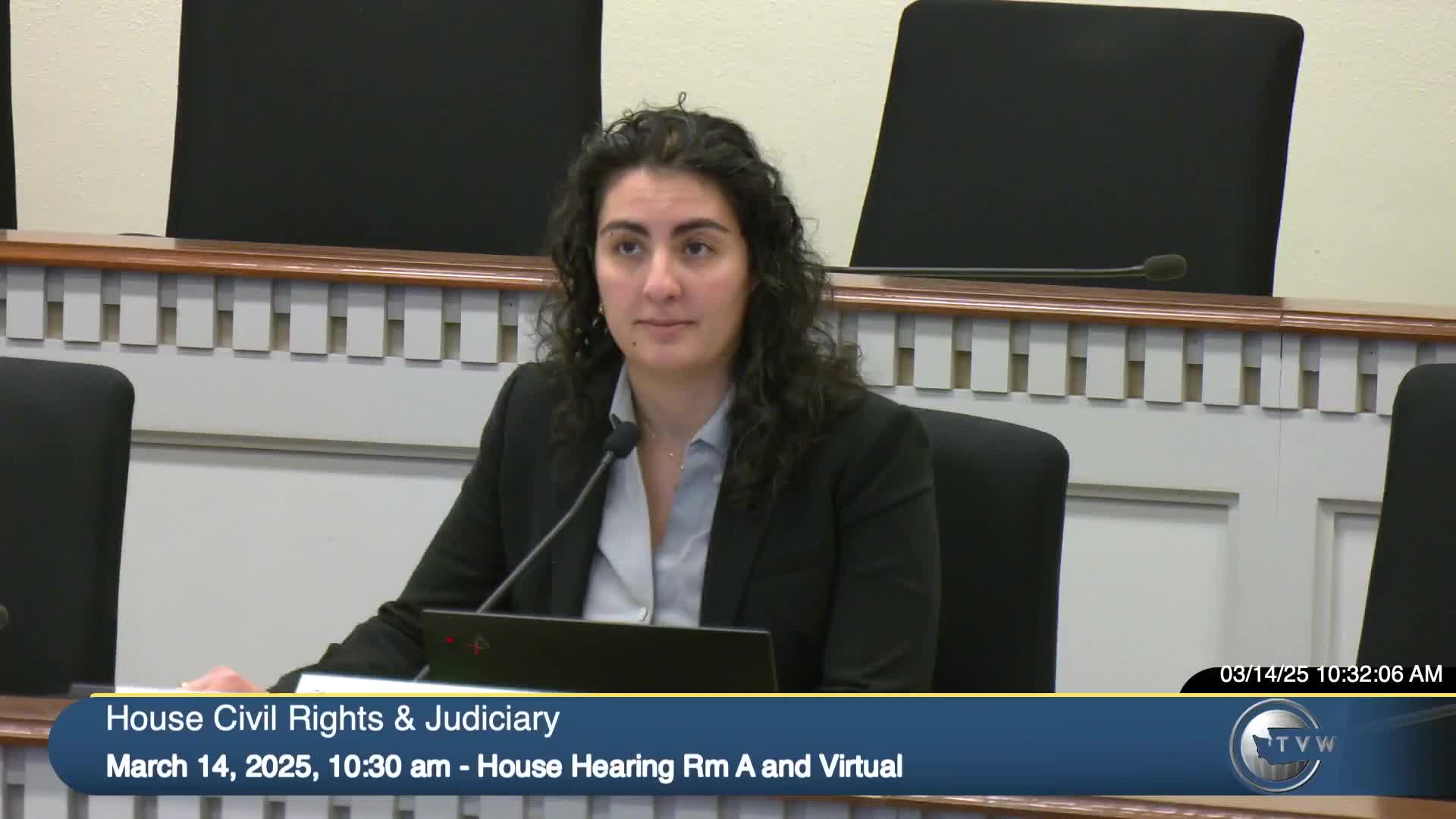Committee hears bill to require state notice of federal HSR merger filings
Get AI-powered insights, summaries, and transcripts
Subscribe
Summary
House Civil Rights & Judiciary Committee heard testimony on Senate Bill 5122, which would require parties that file Hart‑Scott‑Rodino pre‑merger notifications with federal agencies to contemporaneously file the same materials with the Washington Attorney General under specified nexus tests.
A bill that would give Washington’s attorney general earlier access to federal Hart‑Scott‑Rodino merger filings drew support at a March 14 hearing of the House Civil Rights & Judiciary Committee.
House staff told the committee that Senate Bill 5,122 would require a person who files an HSR pre‑merger notification with the United States under the Hart‑Scott‑Rodino Act to make a contemporaneous filing with the Washington attorney general if the filer: (1) has its principal place of business in Washington; (2) or the filer or a controlling person has annual net Washington sales of the goods or services involved of at least 20% at the HSR filing threshold; or (3) the filer is a health‑care provider or provider organization conducting business in Washington. The bill prohibits charging a fee for the state filing, creates confidentiality protections, and allows disclosure only in administrative or judicial proceedings subject to protective orders.
The bill’s prime sponsor, Senator Yasmine Trudeau, told the committee the measure is a uniform law drafted by the Uniform Law Commission and is not an attorney‑general initiative. “Having parties file these HSR forms concurrently with the attorney general would ensure timely review, promote efficiencies by encouraging states to share resources, and is frankly a better use of taxpayer dollars,” she said.
Travis Kennedy, managing assistant attorney general in the Antitrust Division, testified the attorney general’s office supports the bill because it helps the office learn about large transactions earlier and coordinate with federal enforcers. “SB 51 22 would enable us to become involved earlier in the process and ultimately provide clarity to the merging parties,” Kennedy said.
Caitlin Wolf of the Uniform Law Commission described the drafting process as balanced and noted the bill imposes no additional filing fee; the federal HSR filing schedule would remain the operative timeline for parties.
Committee members asked whether the state filing would duplicate federal filings and whether the materials are already available to the attorney general; staff and supporters said the materials are available to federal enforcers but not always to the state and that the bill addresses that notification gap. The attorney general may seek civil penalties up to $10,000 per day for noncompliance, subject to procedural protections.
No formal action or vote was taken; the item was heard in committee and testimony recorded.
Ending: Committee staff and proponents said the bill is intended as an administrative coordination tool rather than a substantive expansion of antitrust authority; the committee will consider next steps following the hearing.
